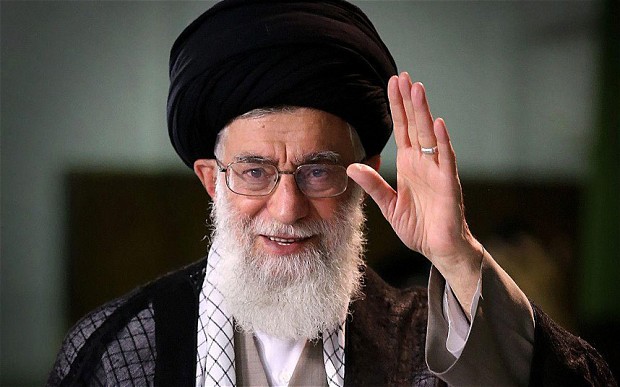Part 2
Hawzah News Agency - Part 1 of this article discussed why the recent US sanctions on Leader of the Islamic Revolution Ayatollah Seyyed Ali Khamenei provoked laughter in Iran, and derision even from Iranophobic Western mainstream media.
Beyond Ayatollah Khamenei, I can very briefly explain how and why the West can persist with its “Millionaire Mullah” mythology:
There are many economic principles that guide the Iranian economy which have no basis in the West – they are, after all, “revolutionary”. Many are based on the principles of Islamic charity and of Islamic finance; many are also based on the anti-capitalist principles which were obviously drawn from the 20th century socialism. There are almost too many to list, but in Part 2 of this 3-part article I will pick a few key ones which specifically relate to the clergy, and which - when added with Iranophobia - create such widespread and ignorant propaganda.
One of the five pillars of Islam is to give to charity (zakat), but one of the five additional pillars of Shia theology is that businessmen must give 20% of their profits to charity (khums). Thus, it should be clear why some say that Iran has an “alms-based economy”. That’s an exaggeration, because there are state taxes as well, but this money goes directly to religious authorities and has gone there for over 1,000 years.
For example, Ayatollah Khamenei was raised in a family (lower middle class clerics on both sides of his parents) which would have never received this money directly - they would have been the recipients of this charity from the much higher-ranking clergy.
Ayatollah Khamenei, through hard work, sacrifice and other virtues, is now a “Marja’” (top religious authority). He now heads various religious foundations which receive – and redistribute downwards – this zakat and khums money.
Of course, he heads these foundations, but this money cannot (and is not) be used by him to buy a Ferrari for his favourite nephew, for example. The Iranian press would die of happiness at the sales prospects caused by such a sensational, unheard-of event! These are “religious foundations” not “The Clinton Foundation”: These foundations serve the poor - they do not trade high-level political access and favours in return for funding a jet-set lifestyle. Of course, most Western media cynically assume that everyone - even a Marja’ as publicly present as Ayatollah Khamenei – secretly operates on shameless Western capitalist principles.
Let’s clarify two key issues: zakat and khums are individual choices – they are not compelled to go to Ayatollah Khamenei. Iranians can send their charity to a Marja’ in Iraq if they like, and many do. Secondly, drastically changing this historic process of zakat and khums would certainly constitute a major revolution in Iran - however, for many it would constitute a rather “un-Islamic Revolution”, and there is no doubt that the democratic majority wanted an “Islamic Revolution”.
Therefore, Islamic charity is a reality of modern economics and finance in Iran. It is not something which non-Muslims can easily comprehend, perhaps, but the failure to do so will help fuel nonsense like “Millionaire Mullahs”. Unlike neoliberalism in the West, these financial principles have the virtue of being democratically-supported, and I can easily argue that they have the additional virtue of far more efficiently increasing economic equality than neoliberalism does.
Ayatollah Khamenei, as the Supreme Leader, is also often listed as the head of companies simply out of respect by the company’s founders. It is often purely honorary. Ayatollah Khamenei is not, for example, giving ideas on product improvement or production strategies to such companies (now the rare ex-president Rafsanjani - rare because he was an Iranian Islamic Revolutionary cleric from a rich, business-oriented background - might have gotten involved, but Ayatollah Khamenei has evinced no such interest)and he is absolutely not in any control of the companies’ assets. He is there in name only as a sign of respect for him, Islam, Iran, etc. Of course, this is distorted/misunderstood by Western pro-capitalist papers.
The Iranian Islamic Revolution also did something which no doubt enrages Western imperialist-capitalists, and about which they have no desire to spread honest information: the revolution took a huge chunk of the factories and industries owned by the Shah and his tiny coterie and gave them to charity.

